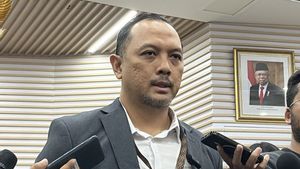JAKARTA – When Rio de Janeiro's residents were forced to stay at home during the last year in the deadliest phase of the COVID-19 outbreak in Brazil, police detective Gabriel Ferrando said he had been alerted if anything suspicious was disrupting local internet services.
Access has disappeared across a wide swath of Morro da Formiga, or Ant Hill, a difficult neighborhood on the north side of the city. When Fernando questioned a technician from broadband provider TIM SA who was tasked with fixing the outage, the worker, who declined to be named, said the gunmen had kicked him out with a warning not to return.
Fernando stated, it turns out that a new internet provider has claimed this area. They are a company whose investors are suspected to be drug smugglers. Even the weapons they use are suspected of having links to the notorious Red Command crime syndicate in Brazil.
These guys use stolen equipment, some stolen from TIM. “The newcomers soon have their own internet service,” said Fernando. “Residents can register with this new company.”
TIM, a unit of Telecom Italia SpA, declined to comment. They referred to all questions submitted to the Brazilian telecommunications industry association, Conexis. In a statement, the group called on state law enforcement to act to protect legitimate operators.
Fernando, a veteran of Rio's leading organized crime unit, is trying to do just that. In a closed-door report documenting the months-long investigation, he asked Rio state prosecutors in February to file charges against the pirates. The prosecutor's office did not respond to a request for comment from Reuters on this allegation.
Morro da Formiga wasn't the only community to report issues. Reuters interviewed nearly two dozen telecommunications industry executives, law enforcement officials, technicians, academics and Internet customers in Brazil, and reviewed thousands of pages of court filings filed by police.
People and documents describe the daring takeover of internet services in dozens of neighborhoods in Brazil's major cities by companies linked to suspected criminals who are not afraid to use violence and intimidation to drive out rivals.
The result, these sources say, is that tens of thousands of Brazilians now rely on unreliable second-rate broadband networks that industry and law enforcement officials estimate to make millions of dollars a year for these criminals.
Pirated internet providers can be unresponsive when service crashes and impatient when bills are missed by customers. In the Campo Grande neighborhood of Rio's working class neighborhood, one resident described how someone knocks on his door every month to collect 35 reais (Rp 97 thousand) in cash.
“There is pressure to pay on the day they choose without delay,” said the customer, who requested anonymity for fear of retaliation.
It's a reliable income stream made even more profitable by the COVID-19 pandemic, which is forcing families to go to school, work and shop online. In 2020 alone, the proportion of Brazilian households with an internet connection grew by more than 12% to 83%, according to the most recent data available from Cetic.br, an information technology organization.
According to the authorities and telecommunications executives, the internet pirates also looted equipment and infrastructure, most of which was reused for their emergency networks. According to Feninfra, theft and destruction of telecommunications equipment rose 34% in 2020 from 2019. This incurs losses of approx., representing about 1 billion reais (Rp2.7 trillion) in a year.
Feninfra, is an industry group whose members include telecommunications and internet installers and repair workers in Brazil. They say that figure will rise another 16% in the first half of 2021.
The English, Chinese, Japanese, Arabic, and French versions are automatically generated by the AI. So there may still be inaccuracies in translating, please always see Indonesian as our main language. (system supported by DigitalSiber.id)













